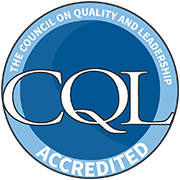QUALITY OF LIFE
People with intellectual and/or developmental disabilities must be able to lead the life they choose so that they can have a quality of life that is meaningful to them.
1“People with intellectual disability (ID)” refers to those with “significant limitations both in intellectual functioning and in adaptive behavior as expressed in conceptual, social, and practical adaptive skills. This disability originates before age 18,” as defined by the American Association on Intellectual and Developmental Disabilities (AAIDD) in its manual, Intellectual Disability: Definition, Classification, and Systems of Supports (Schalock et al., 2010), and the Diagnostic and Statistical Manual of Mental Disorders, 5th Edition (DSM-5), published by the American Psychiatric Association (APA, 2013). “People with developmental disabilities (DD)” refers to those with “a severe, chronic disability of an individual that- (i) is attributable to a mental or physical impairment or combination of mental and physical impairments; (ii) is manifested before the individual attains age 22; (iii) is likely to continue indefinitely; (iv) results in substantial functional limitations in 3 or more of the following areas of major life activity: (I) Self-care, (II) Receptive and expressive language, (III) Learning, (IV) Mobility, (V) Self-direction, (VI) Capacity for independent living, (VII) Economic self-sufficiency; and (v) reflects the individual’s need for a combination and sequence of special, interdisciplinary, or generic services, individualized supports, or other forms of assistance that are of lifelong or extended duration and are individually planned and coordinated,” as defined by the Developmental Disabilities Assistance and Bill of Rights Act 2000. In everyday language people with ID and/or DD are frequently referred to as people with cognitive, intellectual and/or developmental disabilities.








